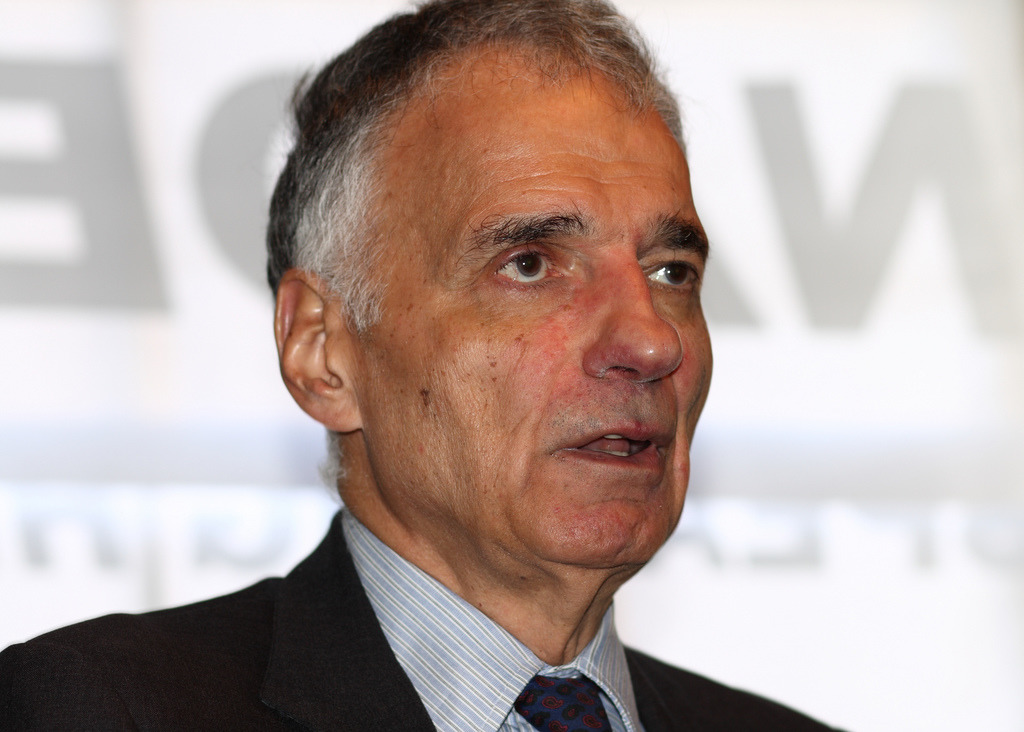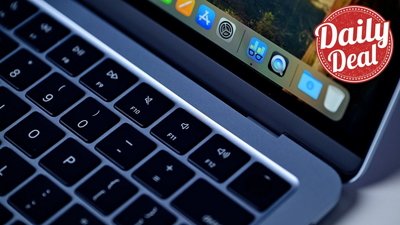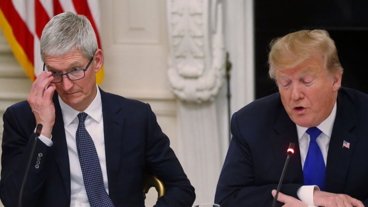The longtime consumer advocate, in a new interview, says Apple could have spent its cash pile on hiring, on pensions, or on stepped-up recycling programs, rather than on stock buybacks.
Consumer advocate Ralph Nader, in a new interview over the weekend, reiterated some points from an open letter he sent to Apple CEO Tim Cook back in May.
In the interview with NPR's Weekend Edition Saturday, Nader suggested some other things Apple could have done with its excess cash.
Nader began by criticizing Apple for executing its $100 billion stock buyback in May without asking shareholders their opinion beforehand.
"It could have been used to increase employees," Nader said. "It could have been used to shore up the pension fund. It could have been used — two percent of it to double the income of the serf laborers, 1.3 million Chinese laborers in the contractor that builds the iPhones.
"It could been two percent of the $100 billion to improve the recycling of used computers and phones, which are endangering both the environment and the workers," Nader continued. "It could have been put in productive investment, it could have been put in research and development. It could have been sent to cash dividends, back to the shareholders. But no."
When asked by interviewer Scott Simon what he thinks about Apple's comeback from "near-extinction" in the mid-1990s to its status today as the world's most valuable company, Nader was less impressed.
"There's no doubt, it's a remarkable turnaround," Nader said. "But under Steve Jobs, stock buybacks were prohibited. He paid himself very little. When Tim Cook came over, everything changed. And while they know how to make enormous money with their overpriced iPhones, they don't know how to productively use it. Marxists of many decades ago would have never dreamed that corporations would pile up all of this capital, and not know how to use it productively."
Nader, who is 84, went on to tell Simon that he does not own any Apple products. "One, I want to get a day's work done, so I'm not involved in email or any of that nonsense," adding that he still uses a typewriter.
Some of Nader's points about Apple are more defensible than others. There's certainly a legitimate debate to be had over whether stock buybacks are the best use of Apple's cash, and whether or not corporations are responsible when they distribute their profits in that manner. And it's certainly true that workers in China who make Apple's products deserve a better wage than they're been getting although, as Nader points out, they are employees of contractors, rather than Apple itself.
On the other hand, companies like Apple don't typically ask permission of shareholders before executing stock buybacks. Apple's spending priorities are far form an either/or, and most of things Nader wishes to see Apple spend money are things that it does spend a great deal of money on.
Apple spends an astronomical amount of money — over $3 billion just in the second quarter of this year — on R&D. They hire new employees all the time, and are opening new offices and facilities all around the country. Apple has also stepped up their recycling programs in a huge way, especially compared to the company's early years.
While Steve Jobs did pay himself $1 a year for much of his time at Apple, he also controlled a great deal of stock and was worth billions at the time of his death. And implying that Tim Cook hasn't delivered anything for Apple in his time at the top besides huge profits is grossly unfair to the CEO's many accomplishments since he took over in 2011.
 Stephen Silver
Stephen Silver







-m.jpg)






 Malcolm Owen
Malcolm Owen
 William Gallagher
William Gallagher

 Wesley Hilliard
Wesley Hilliard



 Christine McKee
Christine McKee


-m.jpg)




90 Comments
Must hurt Tim to see an iconic legend of left-wing ideology blasting him. Does Mr. Nadar have a podcast that Apple can shut down?
Hahahaha. Nader sure is generous with other people’s money.
And regarding his comment that that they didn’t ask the shareholders about the buyback, well who the hell
does he think is selling their stock back to Apple?
Meanwhile, good ol’ Ralph is furiously typing away on his typewriter, pining for the good ol’ days before all this tech mumbo jumbo came along. Back when the environment really was a disaster, and the bulk of the third world was living in abject poverty.
Everybody seems to have a lot of ideas for how Apple should spend its money when it’s literally one of the few companies in the world that honestly tries to do things the right way. 100% clean energy goal, 100% recycling goal, no conflcit minerals, privacy protections, an inspection process for 3rd party manufacturers...
Don’t punish one of the only companies in the world that has figured out how to do capitalism without being straight up evil.
I think he does have some points, although I would have balanced the whole amount between stock buybacks and among the employees with the hopes that they use that money to remind themselves how they got where they are and thru hard work and customer service they can continue to thrive and create more lifelong customers.
Give bonuses for quashing bugs before the public finds them, or for speaking up when a new keyboard design might be rendered inoperable due to a breadcrumb.
But that isn't going to happen.
Mr Nader is mostly correct as Stock buybacks are a very inefficient way to build shareholder value or return excess earnings to shareholders. A special dividend to shareholders, to name one example, would have been a more efficient option.
Under Mr Cook, anything not iOS has been relegated to third class citizen status or left to twist in the wind. Ask yourself when have you seen a broad coordinated advertising campaign for the Macintosh in either the consumer or enterprise space? Look at the abysmal dumpster fire that is iTunes, or the lagging of Roku in the streaming HW space. Why cannot a company as big as Apple keep the wireless router line up to date and world class? Why are they still selling the trash can Mac or the outdated HW in the 2014 Mac mini?
Finally, Apple does have a lot of new employees, but exactly what are they doing that is productive?